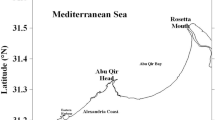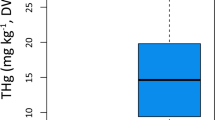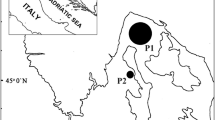Abstract
INCREASING concern about environmental pollution has led to many investigations of heavy metals and their distribution in the sea, air and biological materials. There have, however, been few investigations of seals and here we give some preliminary results of analyses of British seals. Soft-tissue samples were taken from ninety-six seals (Table 1), both common seals (Phoca vitulina) and grey seals (Halichoerus grypus), from six sites around Britain between February 1968 and January 1972; these were collected during the course of long-term population studies. Results from some areas lack data on samples from the middle age-group as mature seals cannot be aged by external features but by examination of canine teeth1,2. Data from East Anglia for both species were pooled because of small sample sizes. Brain and liver samples were obtained from most seals and kidney and teeth from about a third; all tissues were placed individually in uncontaminated polythene bags and stored at −20° C. The wet samples were digested in nitric acid and total mercury was estimated using a Perkin–Elmer 305 atomic absorption spectrophotometer (AAS). Cadmium in soft tissues was estimated by AAS using a flame technique; teeth, collected from 1968 onwards, were dissolved in nitric acid and analysed on a Perkin-Elmer 303 AAS for lead, cadmium, copper, chromium and zinc.
This is a preview of subscription content, access via your institution
Access options
Subscribe to this journal
Receive 51 print issues and online access
$199.00 per year
only $3.90 per issue
Buy this article
- Purchase on Springer Link
- Instant access to full article PDF
Prices may be subject to local taxes which are calculated during checkout
Similar content being viewed by others
References
Laws, R. M., Falkland Islands Dependencies Survey Sci. Rep., No. 2, 11 (1953).
Hewer, H. R., Proc. Zool. Soc. Land., 142, 593 (1964).
Friedemann, U., Physiol. Rev., 22, 125 (1942).
Lofroth, G., Ecological Research Committee Bulletin No. 4 (Swedish Natural Science Research Council, Stockholm, 1968).
Kurland, L. T., Faro, S. N., and Siedler, H., Wld. Neurol., 1, 370 (1960).
Berlin, M., and Ullberg, S., Arch. Environ. Health, 6, 589, 602, 610 (1963).
Ackefors, H., Proc. Roy. Soc., B, 177, 365 (1971).
Glomski, C. A., Broday, H., and Pillay, S. K. K., Nature, 232, 200 (1971).
Schroeder, H. A., and Balassa, J. J., J. Chron. Dis., 14, 236 (1961).
Tipton, I. H., in Metal-binding in Medicine (edit. by Seven, M. J.), 27 (Lippincott, Philadelphia, 1960).
Eastoe, J. E., in Biochemists Handbook (edit. by Long, C.), 721 (Spon, London, 1961).
Author information
Authors and Affiliations
Rights and permissions
About this article
Cite this article
HEPPLESTON, P., FRENCH, M. Mercury and Other Metals in British Seals. Nature 243, 302–304 (1973). https://doi.org/10.1038/243302a0
Received:
Issue Date:
DOI: https://doi.org/10.1038/243302a0
This article is cited by
-
Mercury and Selenium in Subantarctic Commerson’s Dolphins (Cephalorhynchus c. commersonii)
Biological Trace Element Research (2013)
-
Trace Metal Concentrations in the Hair of Zalophus californianus Pups and their Relation to Feeding Habits
Biological Trace Element Research (2008)
-
Trace elements in the teeth of Steller sea lions (Eumetopias jubatus) from the North Pacific
Ecological Research (2005)
-
Mercury concentrations in the australian fur sealArctocephalus pusillus from SE Australian Waters
Bulletin of Environmental Contamination and Toxicology (1985)
-
Distribution of cadmium and zinc in tissues and organs, and their age-Related changes in striped dolphins,Stenella coeruleoalba
Archives of Environmental Contamination and Toxicology (1983)
Comments
By submitting a comment you agree to abide by our Terms and Community Guidelines. If you find something abusive or that does not comply with our terms or guidelines please flag it as inappropriate.



